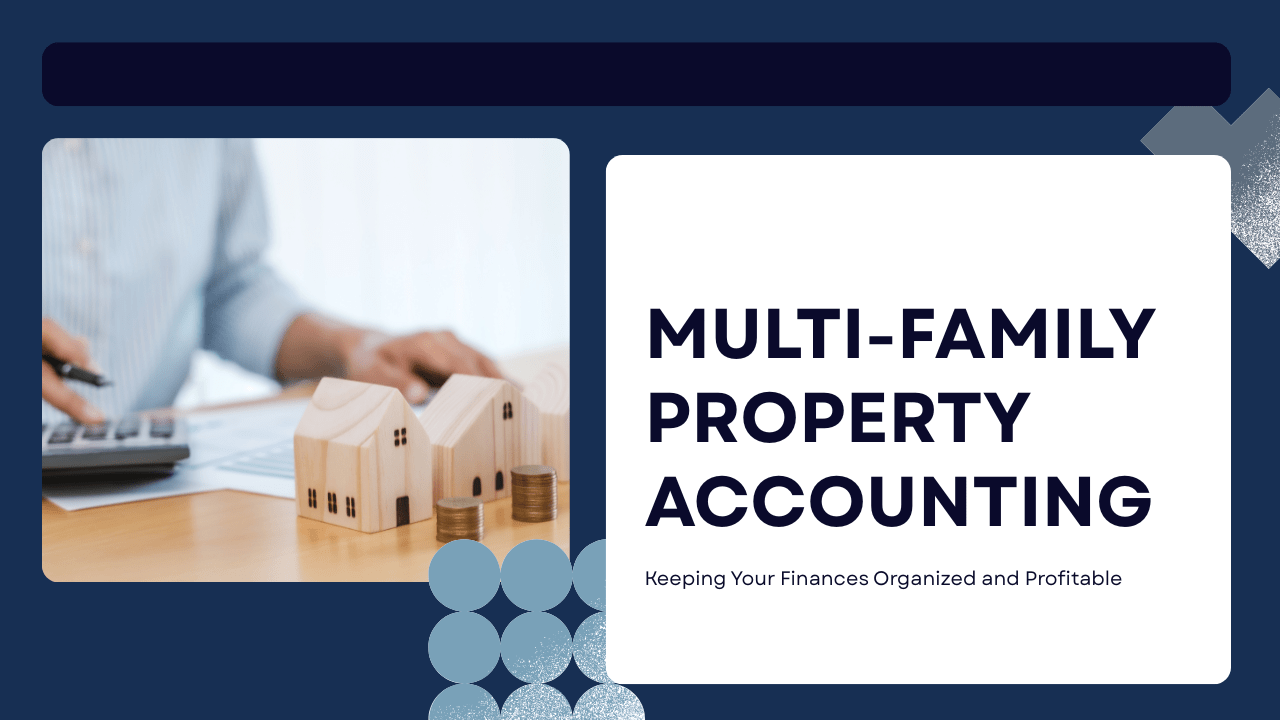Managing a multi-family property in California is more than just ensuring tenants are happy and units are occupied. In order to be profitable with a collection of units or an entire building, property owners need to consistently make smart financial decisions based on accurate, organized accounting data.
At Bell Properties, our comprehensive management services include detailed, accurate, and transparent accounting. The financial reports we provide help investments make smart decisions about their next moves. Our experience has shown us that understanding and implementing sound accounting practices is crucial to maximizing profits, maintaining compliance, and ensuring long-term success.
Not sure you’re getting the accounting information you need? Contact us at Bell Properties. And start with what we’ve written here, which explores why multi-family property accounting is different from the tracking that’s done for single-family residential rentals. We will also outline best practices to keep the books in order and offer tools and strategies to help any landlord or investor run a financially healthy investment.
Why Multi-Family Property Accounting Is Unique
Multi-family properties in California, which include duplexes, triplexes, and small apartment buildings and even larger apartment complexes, come with layers of financial complexity. Unlike single-family home rentals, multi-family buildings often involve details such as:
Multiple revenue streams (from multiple tenants as well as things like pet fees and amenity fees)
Variable expense categories (shared utilities, landscaping, maintenance, etc.)
Higher capital expenditures and operational costs due to building maintenance and improvements
More complicated tax reporting
Because of this, accounting for these types of investments requires more than a simple spreadsheet. A smart investor will have access to detailed records that track income and expenses at both the property and unit level, as well as insights that help to evaluate profitability, forecast cash flow, and optimize operations.
The Building Blocks of Organized Multi-Family Accounting

Any investor who is not sure about how to structure property accounting for their multi-family investments can learn a lot by working with us. Here’s how we approach it.
1. Separate Business and Personal Finances
The first rule of real estate accounting is to separate all business and personal finances. Otherwise, things get messy. This means opening a dedicated business bank account for each property or LLC, using a separate credit card for property-related expenses, and avoiding commingling funds between personal and investment activities. This simple step lays the foundation for clean books, accurate reporting, and easier tax prep.
2. Choose the Right Accounting Method
Real estate investors must choose between cash basis and accrual basis accounting. Not sure about the difference? That’s okay. Here’s a simple explanation:
Cash Basis Accounting records income when it is received and expenses when they are paid.
Accrual Basis Accounting records income when it is earned (even if not yet received) and expenses when they are incurred.
In our experience, most small to mid-sized rental property owners use the cash basis method because it's simpler and aligns with their tax reporting. However, accrual accounting provides a more accurate picture of financial performance—especially as an investment portfolio grows.
We can talk through the options if there’s any confusion about which might work best. Contact Bell Properties and we’ll figure it out.
Key Financial Statements Every Investor Should Track
Any good accounting system for multi-family property investments should help generate the following reports regularly:
Income Statement (Profit and Loss Statement)
Shows total income minus expenses over a specific period. It helps you determine profitability and identify cost-saving opportunities.
Balance Sheet
Summarizes assets, liabilities, and equity at a given point in time. It’s essential for evaluating net worth and overall financial health.
Cash Flow Statement
Tracks how cash moves in and out of your property. This is crucial for ensuring there is enough liquidity to cover expenses, especially during vacancies or unexpected repairs.
Categorizing Income and Expenses Properly

Accurate categorization is vital for insightful reporting and maximizing tax deductions. Use standardized categories to keep things clear and IRS-compliant. Some of the most common income categories that are relevant to multi-family owners include rental income, late fees, laundry or vending machine income, parking fees, or storage rental.
For expense categories, most rental property owners find property management fees, mortgage interest, insurance, property taxes. There are also repairs and maintenance costs. Some landlords pay for utilities in their building. These would show up in the expense column, too.
There are legal and accounting fees, advertising and marketing costs, and potential HOA dues. Multi-family property owners will also have to budget for capital improvements. Note: these are depreciated, not expenses or deducted on taxes.
Why does working with us at Bell Properties help? We use property management software and accounting tools that support this kind of tracking.
Tracking by Unit or Building
Owning a multi-family complex with multiple units makes tracking income and expenses by unit especially smart. This allows owners to:
Identify underperforming units
Compare maintenance costs across units
Evaluate tenant profitability
Make data-driven decisions about rent increases or upgrades
Many property management platforms offer unit-level reporting features. We can provide this for our owners when we provide accounting reports and financial statements.
Budgeting and Forecasting

A clear, detailed budget is essential for managing operational costs and preparing for big-ticket items like roof replacements or HVAC systems. Investors looking for tips on budgeting might try some of the things that we do at Bell Properties:
Use historical data to project recurring costs
Set aside reserves for capital expenditures (CapEx)
Plan for seasonal fluctuations (such as heating bills in winter, turnover in summer)
Regularly compare actuals vs. budgeted amounts to spot issues early
Effective forecasting not only helps you plan but also enhances your credibility when seeking financing or investors.
Depreciation and Capitalization
Understanding how to handle depreciation and capital improvements can have a big impact on any investor’s bottom line. Depreciation allows multi-family investors to deduct a portion of the property's cost each year, reducing taxable income. Capital expenditures such as roof replacements or adding new appliances must be capitalized and depreciated, rather than expensed in the year paid.
At Bell Properties, we’ll always recommend investors work with a CPA to make sure they are taking full advantage of depreciation, including cost segregation studies, which accelerate depreciation on certain components of the property. We can make referrals to accounting professionals when you partner with our team.
Staying Tax Compliant as a Multi-Family Property Investor in California
 Tax compliance is one of the top reasons why organized accounting is non-negotiable. Proper record-keeping helps investors to maximize their deductions. The right systems allow for on-time filings and help owners avoid IRS scrutiny. We’ll always recommend that owners:
Tax compliance is one of the top reasons why organized accounting is non-negotiable. Proper record-keeping helps investors to maximize their deductions. The right systems allow for on-time filings and help owners avoid IRS scrutiny. We’ll always recommend that owners:
Track mileage and home office use if applicable
Maintain receipts for every transaction
Issue 1099s to contractors who earn over $600
File Schedule E with any personal tax return (or use a corporate structure, if applicable)
Again, professional partnerships are key. Consulting with a real estate-savvy CPA can often pay for itself in tax savings and peace of mind.
Using Property Management Software
Investors who do not want to invest in new technology or become unwitting tax experts can work with us at Bell Properties. We provide a new level of technology, documentation, and organization. While spreadsheets can work in the early stages, serious investors will need dedicated property management software with built-in accounting features.
Our platforms can automate rent collection, expense tracking, lease management, and generate reports that are tax-ready.
Outsourcing vs. DIY Management and Accounting
As an investor’s multi-family real estate portfolio grows, they will have to decide whether to handle accounting and management on their own or outsource it to professionals. DIY may work for investors who are also experts in management and maintenance, or accounting experts. But successful investors will always agree that leveraging professional services leads to more profitable outcomes. Multi-family properties especially require an attention to detail that leaves a lot of room for error. Why risk it?
Tips to Keep Multi-Family Investment Accounting Books Clear

Here are some practical steps to maintain organized financial records throughout the year:
Reconcile bank accounts monthly
Digitize receipts
Set aside time weekly to review income and expenses
Run monthly reports to monitor trends and cash flow
Back up your data regularly
Consistency is key when it comes to financial accounting. Any small lapses can lead to big headaches come tax season or when applying for financing.
Owning multi-family rental properties in California can be a powerful wealth-building strategy, but only if finances are in order. Accurate accounting provides the foundation for profitability, smart decision-making, and long-term stability. Whether it’s a fourplex or a 40-unit complex, taking the time to implement smart accounting practices will pay off for new or experienced investors.
Let’s dig a little deeper into this topic with some advice that’s personalized for your unique situation and portfolio. Every multi-family property is building, and each market in California’s competitive rental landscape has its own nuances. Contact us at Bell Properties, and we’ll talk more about our accounting strategies.


